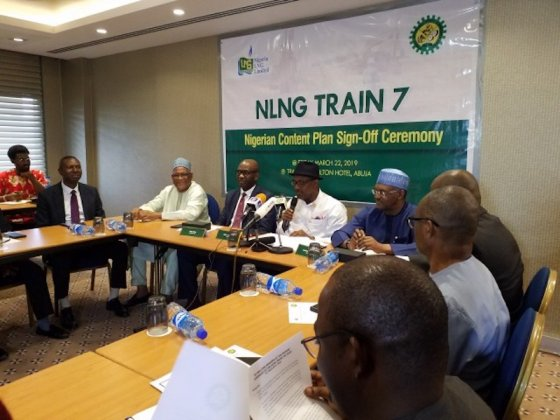The President Muhammadu Buhari on Tuesday flagged off the construction of the $10 billion Nigeria Liquefied Natural Gas (NLNG) train 7 project and charged the company to ensure its timely completion.
Buhari who did the ground breaking virtually from Abuja said the early completion of the project located in Bonny Island, Rivers State, would fast track the commencement of Train 8 gas project.
He advised the Board of Directors, management and staff of NLNG, the Rivers State Government, host communities and other agencies of the Federal Government to close ranks so as to ensure completion of the Train 7 project.
He said, “As we flag off the Train 7 project today, I look forward to the development and execution of more gas projects by the International Oil Companies and indigenous operators, and more trains from Nigeria LNG to harness the over 600 trillion cubic feet of proven gas reserves we are endowed with.
“Let me use this opportunity to commend the shareholders of NLNG, the Federal Ministry of Petroleum, the Nigeria National Petroleum Corporation (NNPC) and the Nigerian Content Development and Monitoring Board (NCDMB) and other stakeholders for very exemplary collaboration which has culminated in this great opportunity for Train 7.
READ ALSO: Nigerian Stock Market Dips By N340bn
“I want to thank the foreign investors for the confidence reposed in Nigeria, and assure all Nigerians and potential investors in the oil and gas sector that the Federal Government will continue to create the enabling environment in order to develop the sector and bring the full benefits of gas closer to our people.”
“As Minister of Petroleum Resources, I kicked off our first foray in LNG Business in 1978. At that time, it was already apparent that Nigeria was mainly a gas-rich country with a little oil.”
The Minister of State for Petroleum Resources, Timipre Sylva, at the event said that the NLNG had positively complemented crude oil exploration by monetising flared gas and yielding huge revenue to the nation and investors.
Sylva added that since the NLNG became operational in 1999, the nation had recorded a drastic reduction in operational flare status from 65 per cent to 12 per cent.












